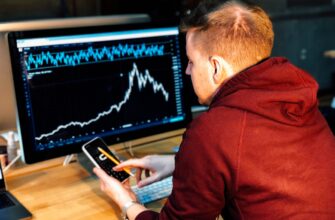- How to Anonymize Your Crypto Wallet Safely: Step-by-Step Privacy Guide
- Why Wallet Anonymity Matters More Than Ever
- Core Principles of Crypto Wallet Anonymity
- Step-by-Step: How to Anonymize Your Wallet Safely
- 1. Start with a New, Clean Wallet
- 2. Acquire Crypto Anonymously
- 3. Use Privacy-Focused Cryptocurrencies
- 4. Mask Your Network Activity
- 5. Utilize Coin Mixers (Cautiously)
- 6. Practice Transaction Hygiene
- Critical Mistakes to Avoid
- Essential Anonymity Tools
- FAQ: Crypto Wallet Anonymity Explained
- Is anonymizing a crypto wallet legal?
- Can I anonymize a wallet already linked to my identity?
- Are privacy coins like Monero truly untraceable?
- Do I need a VPN if I use Tor?
- How risky are crypto mixers?
- Can hardware wallets improve anonymity?
How to Anonymize Your Crypto Wallet Safely: Step-by-Step Privacy Guide
In the transparent world of blockchain, your crypto wallet isn’t as anonymous as you might think. Every transaction is permanently recorded on a public ledger, potentially linking your funds to your identity through exchanges, IP addresses, or behavioral patterns. Safely anonymizing your crypto wallet protects you from targeted hacks, surveillance, and unwanted scrutiny. This guide details proven, secure methods to enhance your privacy without compromising security.
Why Wallet Anonymity Matters More Than Ever
Blockchain’s transparency creates unique privacy challenges:
- De-anonymization Risks: Sophisticated analysis can link wallet addresses to real identities via exchange KYC data or transaction patterns.
- Financial Surveillance: Governments and corporations track crypto flows for compliance or profiling.
- Targeted Attacks: Publicly wealthy wallets attract phishing, hacking, and physical threats.
- Censorship Resistance: Anonymous transactions prevent third-party interference.
Core Principles of Crypto Wallet Anonymity
Before diving into methods, understand these fundamentals:
- Blockchain Is Public: Transactions are immutable and traceable but pseudonymous.
- KYC Is the Weakest Link: Exchanges that verify your identity break anonymity.
- IP Addresses Leak Data: Your network connection can reveal location and identity.
- Privacy Is Layered: No single tool guarantees anonymity; combine techniques.
Step-by-Step: How to Anonymize Your Wallet Safely
1. Start with a New, Clean Wallet
Never reuse wallets tied to your identity. Create a new, non-custodial wallet (e.g., Ledger, Trezor, or open-source software wallets). Generate it offline for enhanced security.
2. Acquire Crypto Anonymously
Skip KYC exchanges. Safer alternatives include:
- Peer-to-Peer (P2P) Platforms: Use Bisq or LocalCryptos with cash or non-KYC payment methods.
- Privacy Coin ATMs: Some ATMs accept cash for Monero (XMR) with no ID.
- Decentralized Exchanges (DEXs): Trade directly from your wallet on platforms like Uniswap.
3. Use Privacy-Focused Cryptocurrencies
Convert assets to privacy coins with built-in anonymity:
- Monero (XMR): Obfuscates sender, receiver, and amount via ring signatures.
- Zcash (ZEC): Offers shielded transactions using zk-SNARKs encryption.
- Dash PrivateSend: Coin mixing integrated into the network.
4. Mask Your Network Activity
Hide your IP address during transactions:
- Reputable VPNs: Choose no-logs providers like Mullvad or ProtonVPN.
- Tor Browser: Access .onion wallet interfaces for maximum anonymity.
- Avoid Public Wi-Fi: Use mobile data or secured home networks.
5. Utilize Coin Mixers (Cautiously)
Mixers obscure transaction trails by pooling funds. Use only if necessary:
- Research extensively – prioritize open-source, audited mixers like Tornado Cash (use via VPN/Tor).
- Mix small amounts incrementally to avoid drawing attention.
- Never mix coins linked directly to KYC exchanges.
6. Practice Transaction Hygiene
- Never Reuse Addresses: Generate a new deposit address for every incoming transaction.
- Delay Interactions: Avoid sending funds directly from mixed wallets to KYC platforms.
- Use Decentralized Wallets: Opt for software like Wasabi Wallet (Bitcoin) or Cake Wallet (Monero).
Critical Mistakes to Avoid
Steer clear of these anonymity pitfalls:
- Reusing KYC-Linked Wallets: Once tainted, discard them.
- Ignoring Network Security: Transacting without VPN/Tor exposes your IP.
- Trusting Unverified Mixers: Scam mixers steal funds – verify community trust.
- Cross-Contaminating Wallets: Don’t merge anonymized and identifiable funds.
Essential Anonymity Tools
- Wallets: Ledger (hardware), Samourai (Bitcoin), Monero GUI (XMR)
- Exchanges: Bisq (P2P), FixedFloat (non-KYC instant exchange)
- Network Privacy: Tor Browser, Mullvad VPN
- Analytics Blockers: Browser extensions like NoScript or uBlock Origin
FAQ: Crypto Wallet Anonymity Explained
Is anonymizing a crypto wallet legal?
Yes, in most jurisdictions. Privacy is a fundamental right. However, using anonymity tools for illegal activities remains prohibited. Always comply with local regulations.
Can I anonymize a wallet already linked to my identity?
Partially. Transfer funds to a new, clean wallet using anonymous methods (e.g., P2P or DEXs). Avoid mixing old and new transactions.
Are privacy coins like Monero truly untraceable?
Monero offers the strongest privacy guarantees by default, making transactions extremely difficult to trace. No cryptocurrency is 100% anonymous, but Monero comes closest.
Do I need a VPN if I use Tor?
Not necessarily. Tor encrypts traffic through multiple nodes. Combining both adds redundancy but may slow speeds. Prioritize Tor for wallet access.
How risky are crypto mixers?
High risk if misused. Choose audited, decentralized mixers and never transfer large sums. Regulatory scrutiny is increasing – use only when essential.
Can hardware wallets improve anonymity?
Indirectly. They secure private keys offline but don’t hide transactions. Pair them with privacy coins and network tools for full protection.
Final Tip: Anonymity requires ongoing vigilance. Regularly update tools, avoid linking wallets to personal data, and prioritize security at every step. By layering these techniques, you reclaim financial privacy without sacrificing safety.








